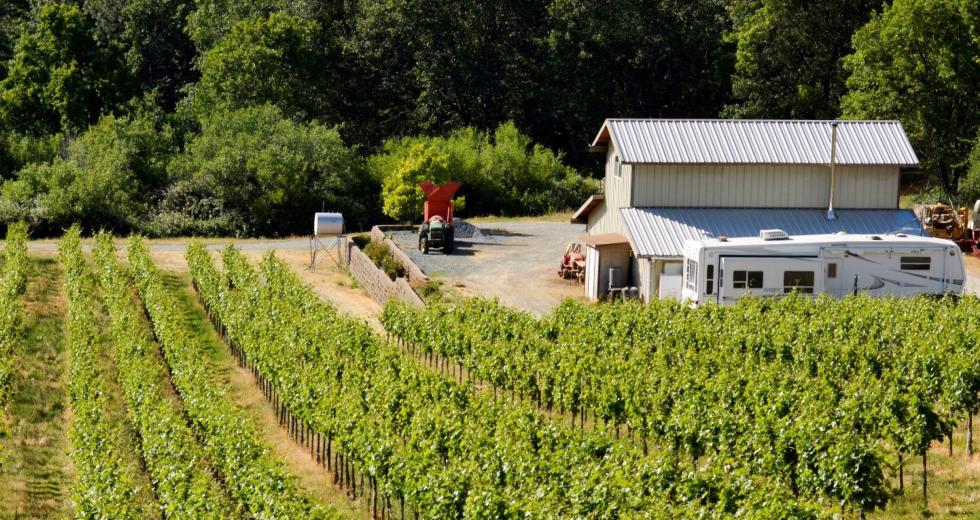Water supply and effective water management have been crucial economic tools in California for centuries. Our state’s agricultural sector is an over $50 billion industry that can only thrive with reliable water. Farmers and ranchers in the Central Valley, food processing plants and distribution companies throughout the state, and more locally, the vineyards, farms, orchards and ranches in the Capital Region contribute to an agricultural economy that currently employs more than 1.1 million people throughout the state.
The economic benefits of our state’s agricultural industry are not confined to our borders — more than half of the agricultural production and food supply for the United States comes out of California. We also produce several crops (e.g., rice, almonds and fruits) that are relied upon throughout the world.
While water management and supplies have remained relatively constant, we face increasing threats posed by climate change and shifts in water demands. New tools, methodologies and approaches are needed to maintain California’s prosperity and position as a national and international leader in the agricultural sector.
The hard lessons we’ve learned in recent decades from catastrophic wildfires and drought can, and should, serve as the foundation for a new, integrated approach to water planning, with a focus on strong statewide, regional and interagency partnerships and data sharing. This collaboration should be paired with a comprehensive approach that identifies how water demand, recapture, reuse, conservation, storage and watershed ecology can all be simultaneously addressed to meet future challenges with unparalleled water resilience.
Agriculture is a major cornerstone of both the state and regional economy, generating more than $50 billion in revenue statewide, and more than $17 billion worth of crops in the Central Valley each year. The United States Geological Survey reports that more than 75 percent of the irrigated land in California, and 17 percent of the nation’s irrigated land, is in the Central Valley — and the Central Valley produces more than a quarter of the nation’s food supply, including 40 percent of the fruits, nuts and other table foods produced in the U.S. Ensuring water reliability for irrigated land in California is imperative for continued opportunities and prosperity.
In the Sacramento Valley and surrounding areas, including Amador and El Dorado counties, tens of millions of dollars’ worth of gross agricultural product is produced annually, and local wineries, orchards such as those in Apple Hill, Christmas tree farms, and farmers markets contribute significantly to hundreds of millions of dollars in visitor spending each year. This spending generates thousands of additional jobs and millions of dollars in state and local tax revenues. So when water reliability is strained, especially during the prolonged and more frequent droughts, the economy can suffer significantly.
The way ahead for the state and the agricultural economy is smart, forward-thinking water planning. But in order to adapt to changing circumstances, water planning must be dynamic and should lean on defined strategies that seek to address not only current challenges, but upcoming challenges. Climate variations, more severe droughts and catastrophic wildfires that degrade our watersheds are all real threats to the continued growth and success of agriculture in the region and throughout California. Water sources, which primarily originate from ecosystems in the Sierra Nevada, play a major part in sustaining the entire state, which impacts food supply chains for the entire country.
We’ve already seen the increasing economic impacts of strained water systems in California. During the last drought (2012-2016), the California economy suffered $3.8 billion in economic losses. These impacts were brought on by a multitude of compounding circumstances, from water rationing, disputes over water rights and rate hikes — to longer and more destructive wildfire seasons resulting from a combination of drought and/or poor watershed maintenance. Left unchecked, they will continue to impact the state’s ag economy, especially in times of drought. In addition, higher costs and limited production associated with impacted water resources can more greatly affect local economies, including basics such as higher food costs in neighborhood supermarkets.
At the El Dorado Water Agency, we’ve been taking steps for the next generation of water planning that we hope will serve as a blueprint for the rest of the state. We’ve participated in and led collaborative projects and partnerships with other planning agencies and local governments in the region, including water demand studies, ecological studies, and cost-sharing opportunities that allow us to help share the burden of projects that benefit the entire region. Additionally, we are working to ensure reliable water supply through a multipronged, regional and collaborative approach that includes storage, reclamation, watershed and ecosystem management, and an overall increase in water supply reliability.
If water planners throughout California adopt similar approaches and foster strong interagency, regional and statewide partnerships that lead to a collective effort, we can move beyond segmented approaches and toward a 21st century water reliability plan that benefits everyone and prepares California for what’s to come.
Brian K. Veerkamp is a current El Dorado County Supervisor, eight-year member of the El Dorado Water Agency board of directors, retired Fire Chief with 30 years of public emergency services experience, and fifth generation resident of El Dorado County. During his tenure as chief, he worked collaboratively with many agencies within the County and surrounding region to serve and protect residents, their property and the business community.
Kenneth V. Payne, P.E., has served as the General Manager of the El Dorado Water Agency since 2015. He has forged partnerships with numerous local, regional, state and federal entities to collaborate on projects that support a shared vision of future resource planning and effective water management for the Sacramento region. Ken has more than 30 years of public and private-sector experience focused on water and its interconnectivity with the economy and the environment.
–
Stay up to date on business in the Capital Region: Sign up for the Comstock’s newsletter today.
Recommended For You

Going With the Flows
McGeorge School of Law professor Jennifer Harder on water issues, laws and uses
Professor Jennifer Harder is the co-director of the Water & Environmental Law program at McGeorge School of Law in Sacramento. Comstock’s spoke with Harder about water issues affecting the Capital Region and California.

Keeping the Water Flowing
The Fair Oaks Water District finds new ways to serve customers during the pandemic
COVID-19 is threatening the financial stability of water suppliers providing an essential public health service. Water utilities are faced with an extraordinary combination of increasing costs to meet needs and falling revenues resulting from declining commercial use and personal financial strain on ratepayers.

Protecting Open Land
California Rangeland Trust project places fiscal value on the environmental benefits of ranches
Ranchers and those in the conservation industry know there’s an inherent value to working lands, such as cattle ranches. But how do they monetize that value?

Where the Water Grows
Folsom's strategy for growth, like that of many cities, reroutes conserved water — but residents say that plan caught them off guard
Effective water conservation throughout the City of Folsom made way for the largest expansion of the city in decades. While not all residents agree with Folsom’s strategy, it is being implemented in growing cities around the state as an effective tool to meet housing demand.



